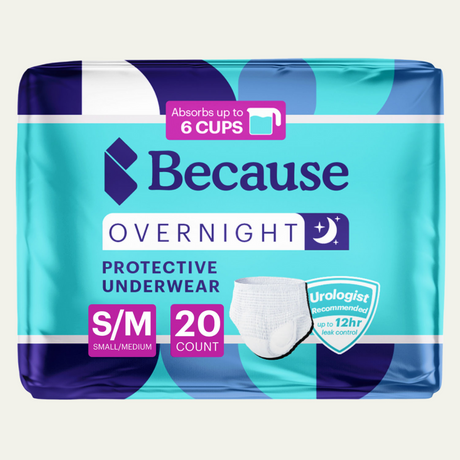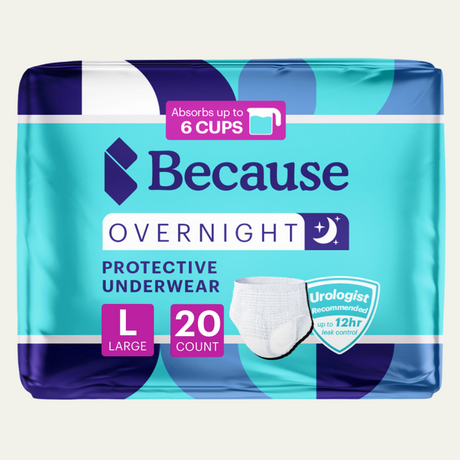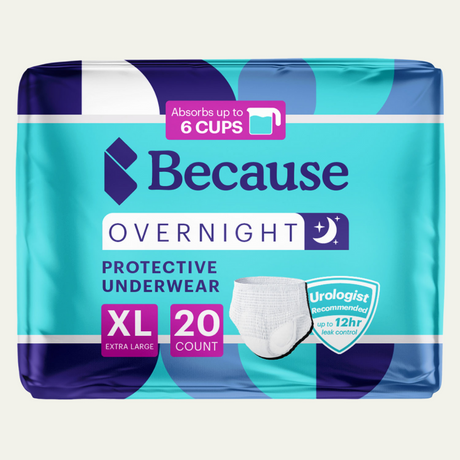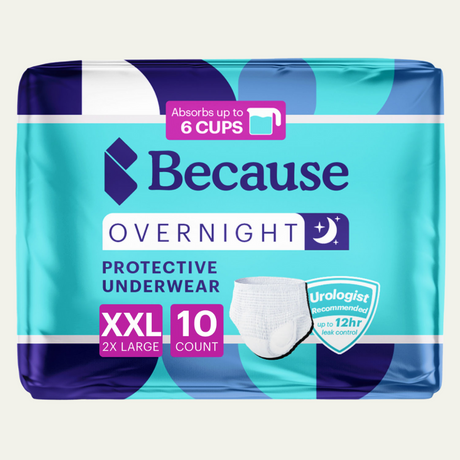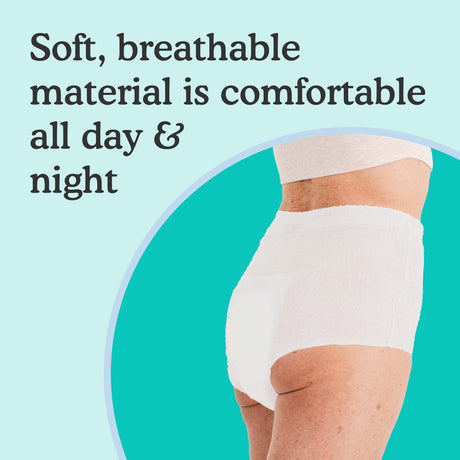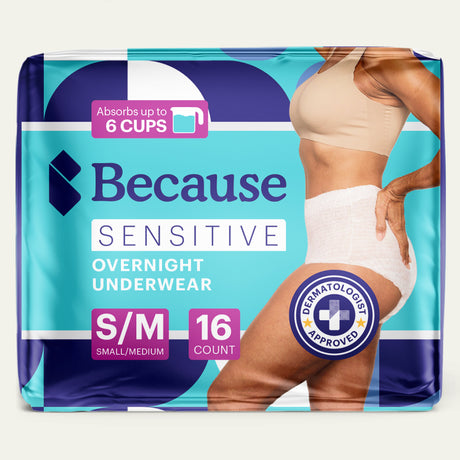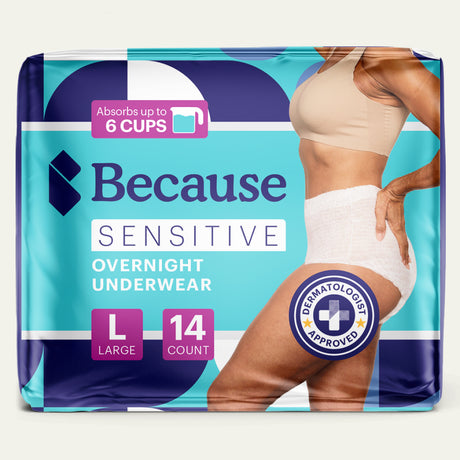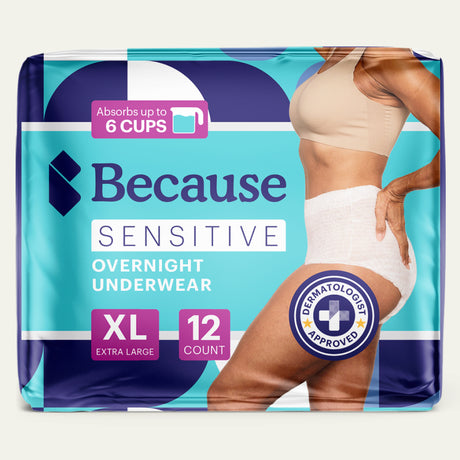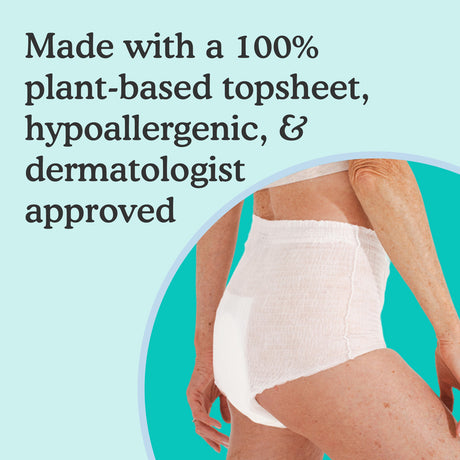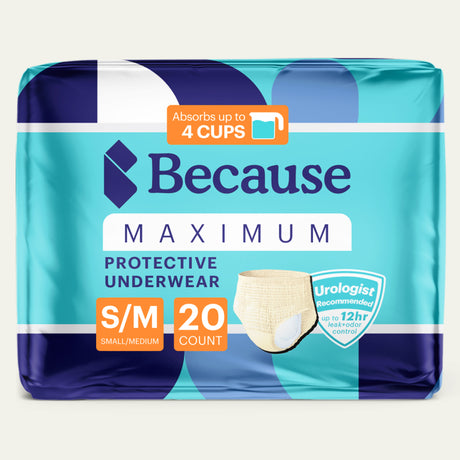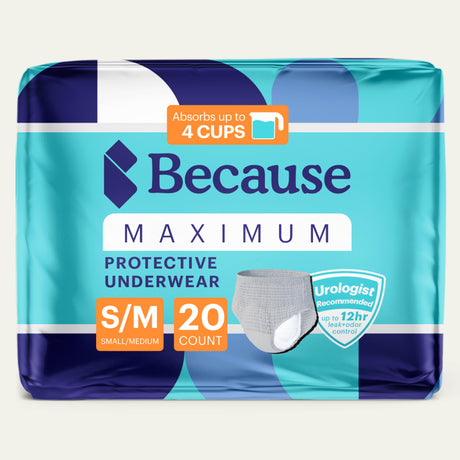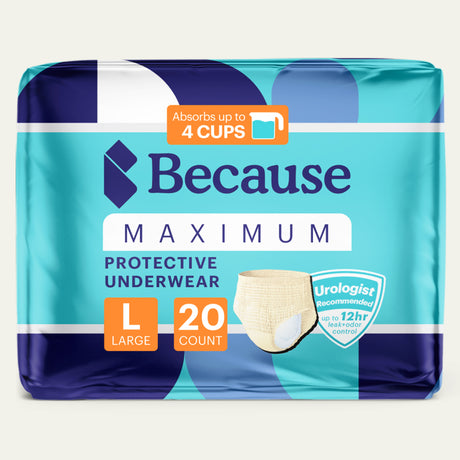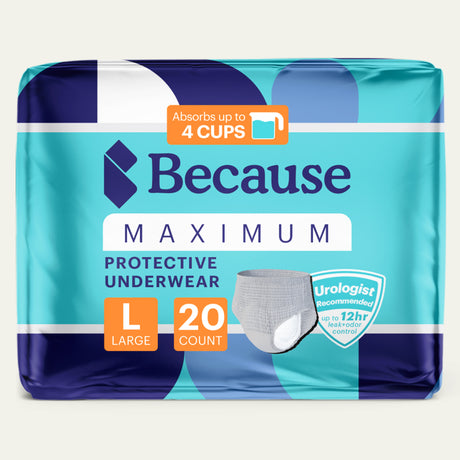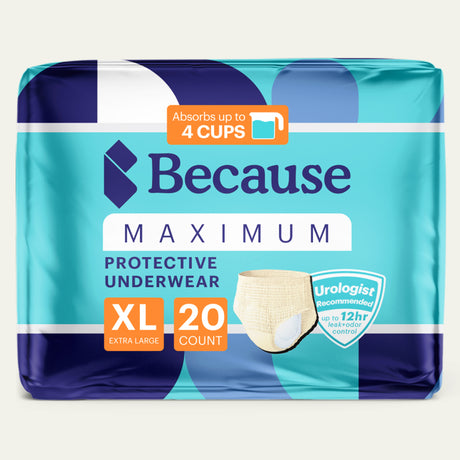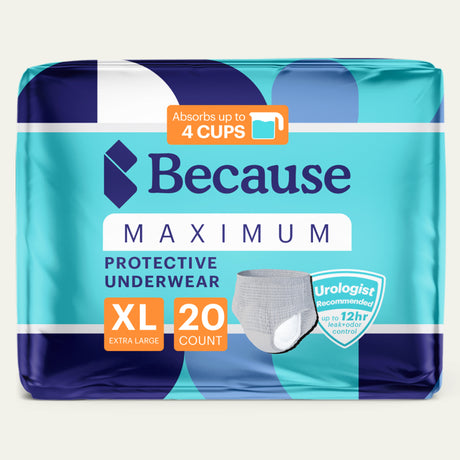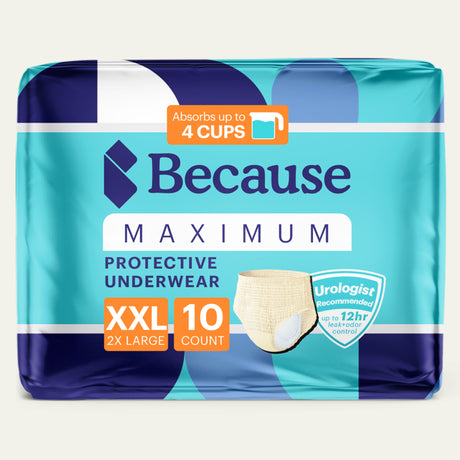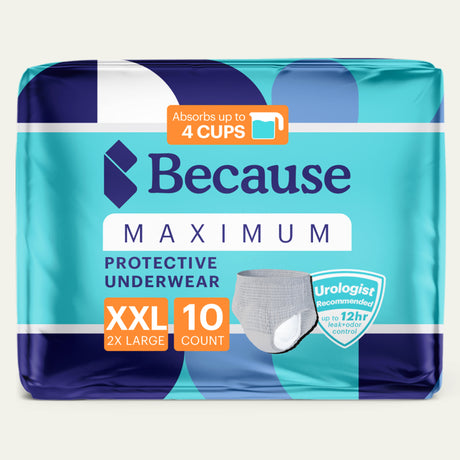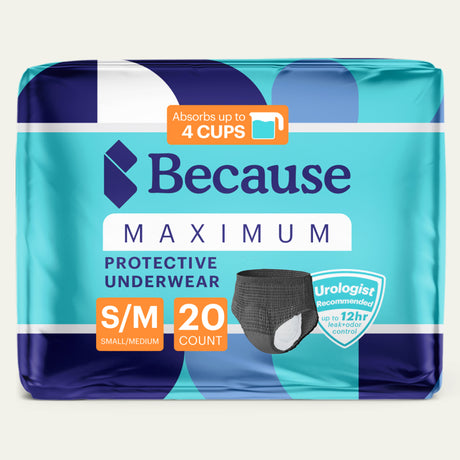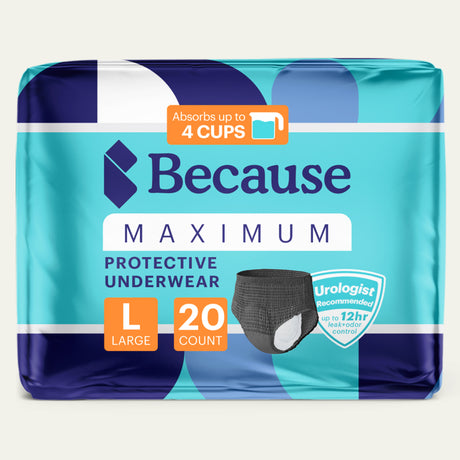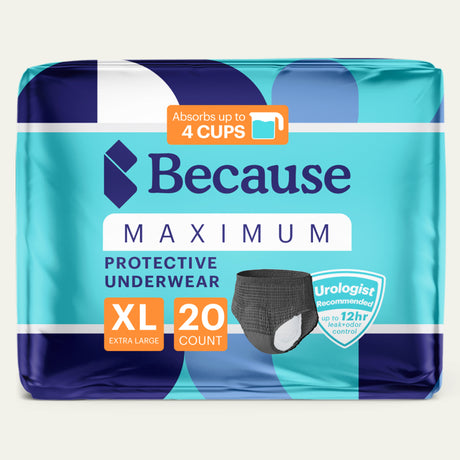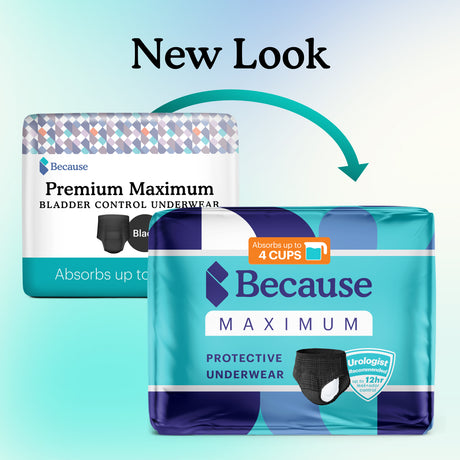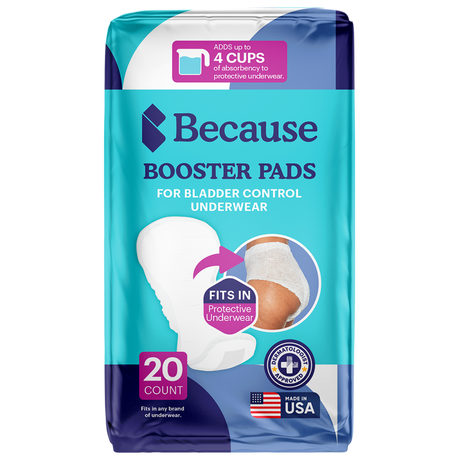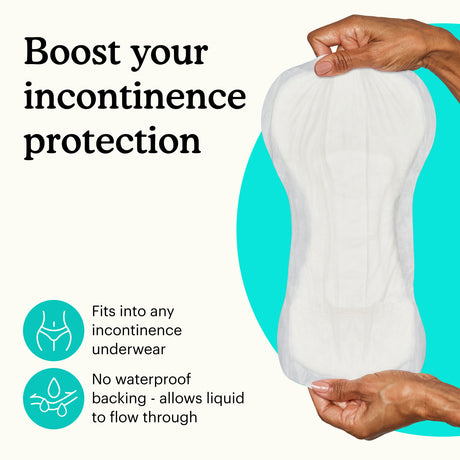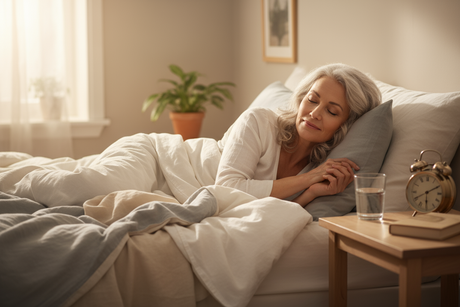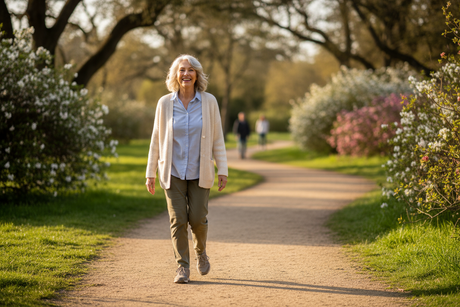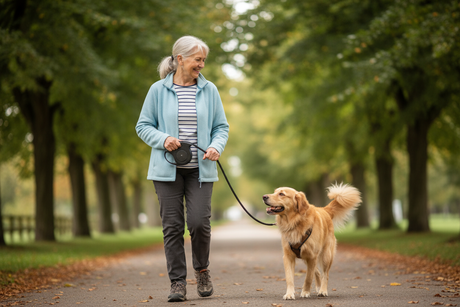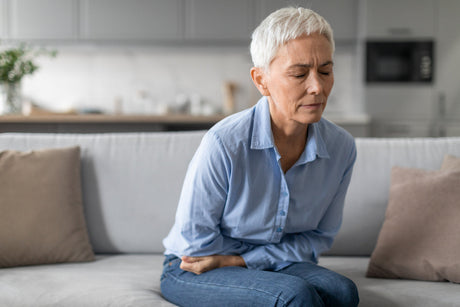If you deal with the symptoms of urinary incontinence daily, you may feel tempted to cut down your water intake. It seems logical that not drinking as much water and other fluids would reduce urine production and lower the likelihood of incontinence problems. However, the opposite is true. If you don't consume enough fluids daily, you run the risk of dehydration, which may worsen overactive bladder and urge incontinence. In this post, we explain why staying hydrated is one way to improve symptoms of urinary incontinence and support overall health.
Can Dehydration Cause Incontinence?
Dehydration usually does not directly cause incontinence. The most common causes of incontinence include:
- Weak pelvic floor muscles due to childbirth
- Urinary tract infections
- Menopausal hormone changes that increase bladder contractions can weaken pelvic floor muscles and cause deterioration of the urinary tract lining
- Enlarged prostate and prostate cancer
- Digestive problems that lead to chronic constipation
- Kidney stones and bladder stones
- Neurological conditions like brain damage due to stroke, Parkinson's disease, and multiple sclerosis
- Medical conditions that affect thinking, such as Alzheimer's disease and dementia
Although dehydration doesn't directly cause incontinence, not drinking enough water and other drinks can worsen symptoms, particularly with overactive bladder with stress incontinence.
How Are Dehydration and Incontinence Connected?
Dehydration may increase urinary urgency and leakage if you have an overactive bladder (OAB) with stress incontinence. To understand the relationship between dehydration and incontinence, you first need to know how your bladder works. Throughout the day, your kidneys produce urine, which travels through tubes called ureters and then enters the bladder.
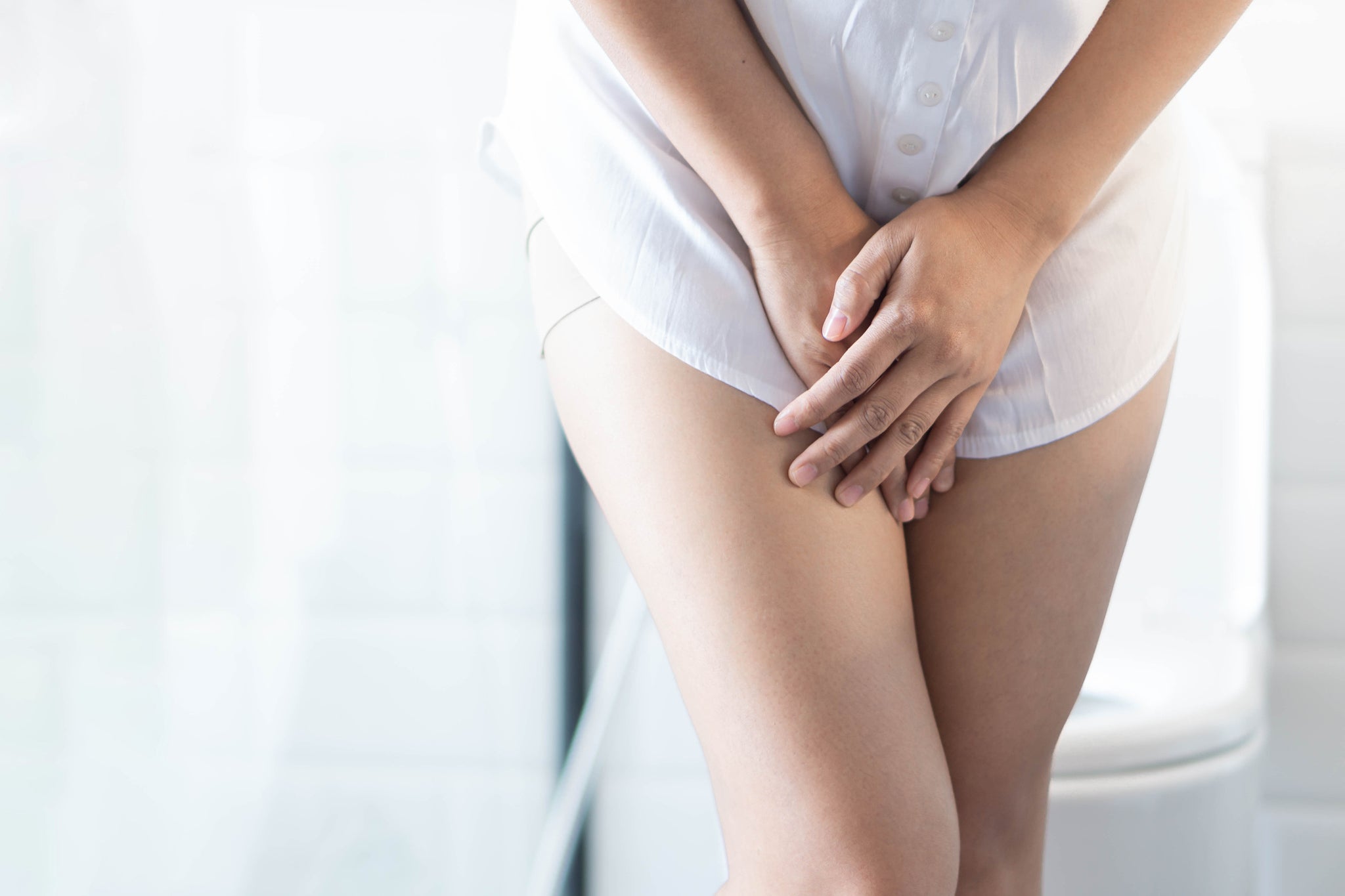
Located in the lower pelvic area, the bladder acts as a storehouse for urine. When it becomes full, the bladder muscles contract. Nerves detect these contractions and transmit signals to your brain telling you that you need to go to the bathroom. During urination, the relaxation of your pelvic floor muscles and urethra allows urine to leave the bladder and exit your body.
In people with OAB, the bladder contracts even when it's not full. These involuntary contractions create the urgent need to urinate. For those with stress incontinence and OAB, unintentional loss of urine can occur due to contractions, leading to accidents.
A lack of proper hydration increases urine concentration, which can irritate the bladder. The resulting bladder irritation may trigger bladder contractions, raising the risk of urine leakage and side effects of incontinence, like body odor.
Dehydration can also lead to constipation. When you don't defecate regularly, the buildup of stool in the bowel can put pressure on your bladder, further worsening symptoms of OAB.
Why Is Dehydration a Common Issue for Seniors?
An estimated 17 to 28% of older people are chronically dehydrated, and seniors are 20 to 30% more prone to dehydration. Some reasons why dehydration is so common among the elderly include all of the following.
Lack of Mobility
More than one-third of people over the age of 70, and half of those over 80, have mobility limitations. Problems with mobility can make it difficult to take frequent trips to the kitchen to refill glasses of water. Mobility can be especially hard for individuals confined to bed due to health issues. Seniors concerned about clean drinking water may struggle to get to the store to purchase bottled water.
Impaired Thirst Mechanism
Feeling thirsty is your body's way of signaling when you need to drink liquids to avoid dehydration. In elderly people, the body's thirst mechanism declines. Even if their entire body needs water, they may not feel thirsty, and this lack of thirst means they don't seek out beverages in a timely manner.
Medical Conditions and Medications
Seniors are at an increased risk of many health conditions that cause dehydration, such as diabetes and kidney disease. In addition, Alzheimer's disease, age-related dementia, and neurological conditions that affect the mind may cause older men and women to forget to drink. Older adults may also take medications that dehydrate the body, such as certain oral drugs for diabetes and diuretics for high blood pressure, kidney failure, liver failure, heart failure, and glaucoma.
Signs of Dehydration
The first step in preventing dehydration is knowing the warning signs of being dehydrated. The following are signs that a person's fluid intake may need to increase.
Always Thirsty
Persistent thirst can indicate a person isn't consuming enough water during the day. Doctors often encourage people with OAB to keep a bladder diary that records how often they feel thirsty, how much they drink, and how frequently they urinate. Keeping this kind of log can give you and your medical provider insight into how hydrated you are and whether your urologic condition is under control.
Remember that excessive thirst can also be an indication of other health conditions. Be sure to talk to your doctor about a sudden change in your level of thirst.
Dark-Colored Urine
A lack of fluids causes urine to become more concentrated. When this occurs, urine develops a dark color similar to the color of tea. When adequately hydrated, your urine should have a light yellow tinge, similar to lemonade. Some medications can change urine color, so you may ask your doctor if any of your meds can cause this color change. Tracking the amount of urine you produce is another way to assess your hydration level. If you go to the bathroom significantly less, you may suffer from dehydration.
Constipation
Water helps stool pass through the bowels. Dehydration can decrease the frequency of bowel movements and make it harder for you to move your bowels. Stool that resembles small rocks or pebbles may also be a sign of constipation.
Chronic Fatigue and Brain Fog
Water is a part of every cell in your body, including those in your brain. Dehydration can cause brain fog, an inability to concentrate or think clearly. You may feel far away or "out of it" if you're dehydrated. Because a lack of fluids can also interfere with energy production, fatigue unrelated to physical activity may signify dehydration.
Chronic Headaches
When tissues in your body become parched due to dehydration, they contract. In fact, your brain actually shrinks slightly when you're dehydrated. As the brain grows smaller, it moves away from the skull and presses against nerves. You perceive this pressure as a headache with pain confined to one spot.
Bad Breath
Without proper hydration, saliva production decreases, leading to dry mouth. An inadequate supply of saliva can cause dead cells to accumulate and gradually break down in your mouth. As these cells deteriorate, they give off substances that cause bad breath.
Skin Issues
Your body needs moisture to maintain healthy skin. Chronic dehydration can lead to symptoms of dry skin, such as roughness, scaliness, redness, and itching.
How to Optimize Your Fluid Intake
If you have OAB with stress incontinence, you need to balance your fluid intake to reap the benefits of proper hydration without drinking so much that you increase urinary urgency and frequency. To do so, follow these hydration tips.
Seek Medical Advice for Your Optimal Intake
How much water a person needs to drink daily depends on age, gender, weight, height, lifestyle, geographic location, general health, and other factors. A good rule of thumb is to drink 2 liters of water daily. However, you may need larger or smaller amounts of water. Your doctor can tell you the number of glasses of water to drink daily to meet your body's unique hydration needs.
Remember to Compensate for Climate and Activity
When you sweat, you lose water at a faster rate. During the summer months or year-round in a hot climate, you may need to increase your fluid intake and take steps to stay cool on warm days. You will also likely need to increase water consumption when exercising or performing chores that make you sweat.

Limit Alcohol and Caffeine
Alcoholic beverages like wine and beer and caffeinated drinks like coffee, tea, and soda can dehydrate you, so limit your intake of them. Doing so may also help reduce leaks and urinary urgency associated with OAB, as alcohol and caffeine can cause bladder irritation.
Eat More Fruits and Vegetables
Water intake doesn't just come from what you drink. Foods can also contribute to your fluid intake. Fruits and vegetables are great sources of water. Options with the highest water content include:
- Apples
- Celery
- Cucumbers
- Lettuce and watercress
- Peaches
- Tomatoes
- Watermelon
- Zucchini
Sipping a hot cup of broth can also help you achieve your goal of staying hydrated.
Do you struggle with incontinence? Take our bladder protection quiz and get a starter pack to try.
If you're struggling with incontinence, join one of our private support groups today!
Women's Incontinence Support Group
Men's Incontinence Support Group
Sources:
NCBI Bookshelf. (n.d.). Incontinence and Voiding Dysfunction. National Center for Biotechnology Information. https://www.ncbi.nlm.nih.gov/books/NBK555956/
Frontiers in Physiology. (2020). The Aging Bladder and Catheterization: Friend or Foe? Frontiers Media S.A. https://www.frontiersin.org/articles/10.3389/fphys.2020.00881/full


